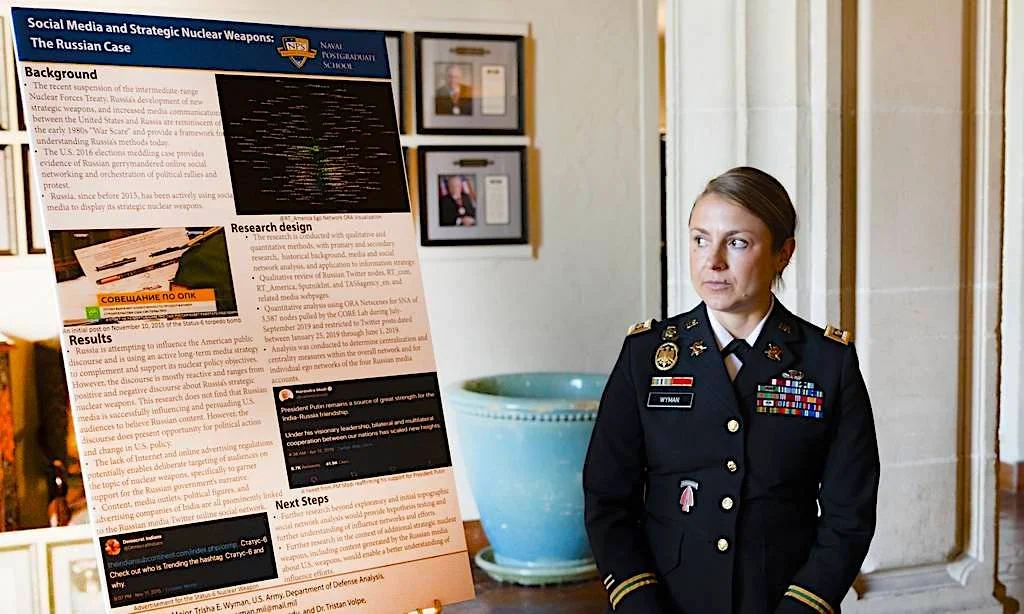Military, veterans learn to fight disinformation campaigns
Army Maj. Trisha Wyman prepares to present her master’s thesis research during the annual Defense Analysis Research Week. Wyman, a December 2019 graduate of the university, performed a detailed analysis of a Russian disinformation campaign designed to shape U.S. perceptions of nuclear capabilities.
Military Times
In the summer of 2015, active duty troops began to arrive in Bastrop, Texas, for a military training exercise. The exercise wasn’t much different from previous joint training exercises, except perhaps for its size. Over the course of two months, more than a thousand troops conducted training focused on operating in overseas combat environments.
It was different in one other respect, as well: Texas Gov. Greg Abbott had ordered the Texas State Guard to monitor the exercise. A civilian watchdog group formed to keep an eye on things, too. In D.C., Texas Sen. Ted Cruz reached out to the Pentagon ahead of the training — asking for reassurance that the exercise was, in fact, just an exercise.
Online, news of the training had quickly transformed into rumors and conspiracy theories. Operation Jade Helm, as the exercise was known, was a government ploy to seize people’s guns. The president was facilitating an invasion by Chinese troops. The exercise presaged an asteroid strike, which was going to wipe out civilization.
None of those things was true. At the end of Operation Jade Helm, the military went home. People still had their guns. No asteroid struck Earth. Three years later, in 2018, Michael Hayden, the former CIA director, said the tidal wave of theories around the operation had been the result of a Russian disinformation campaign.
Over the past several years, disinformation, or the intentional deployment of false information for malicious ends, has emerged as a critical threat to public discourse and national unity. Events like Operation Jade Helm demonstrate just how quickly something ordinary can morph — online, and in people’s minds — into something extraordinary. The military community is not immune. In fact, veterans were among those who shared false rumors about Jade Helm. MORE

